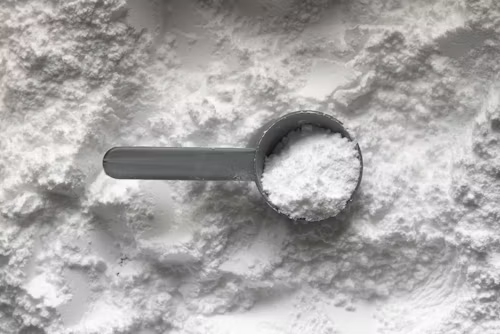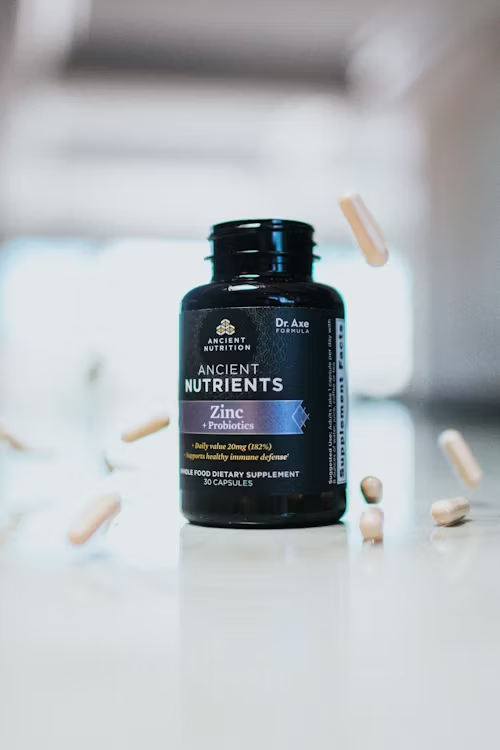Supplements are a common yet extremely controversial topic in the fitness community. Some people swear by them, while others are sure that they do more harm than good. I’ll be breaking down what exactly good and bad supplements to use are, how to use them safely and intelligently, as well as listing 3 of the best supplements that increase strength and enhance energy and recovery
Things you should know

Before I get into specifics, there’s some important information you should know about supplements. A supplement is just that – a supplement. They’re designed to supplement your diet, not replace parts of it. It’s always better to get your nutrients from food if possible. Supplements are there to help achieve your dietary goals, but most certainly should not be the breadwinner. Exceptions to this include circumstances such as being in recovery from dental surgery, as you may be forced to turn to supplements to stay nourished.
Before choosing what supplements to use, you need to consider whether or not your goals warrant the use of supplements. Supplements can be expensive and often do not carry the same benefits as getting that nutrient from food. Conduct an analysis on your lifestyle and goals, and then choose what, if any, supplements to take.
Taking supplements requires forethought, as they have numerous disadvantages over normal food you must weigh against their benefits. For example, common pill or capsule supplements may have poor absorption compared to getting the same amount from food, leading to you obtaining less of the nutrient. Powder-based supplements, while often having better absorption, can also cause gastrointestinal distress in some individuals, among other issues. In addition, some supplements contain high amounts of certain substances that can be harmful to the body if taken improperly. That aside, provided you have thought carefully about it, supplements can have a place in your daily life.
Vitamins and Minerals

Vitamins and minerals are critical to your health. While they can almost always be obtained in adequate amounts from food, sometimes, based on dietary restrictions or even convenience, they can prove beneficial.
So what should you be using?
There is an incredible amount of vitamin and mineral supplements that you can buy. Most, however, are unnecessary. While deficiency is common, don’t load up on every supplement you can find; most people are only deficient in one or a few vitamins and minerals. Some quick research on the foods you usually eat can pinpoint any possible nutrient deficiencies you may have.
Usually, with vitamins and minerals, you can easily get all you need from your diet. Despite this, supplementation with certain ones can prove beneficial for strength gains and overall energy. I’ve listed some with the most benefits for these goals here.
- Vitamin D
Vitamin D is one of the vitamins that is very challenging to get adequate amounts of from food. Luckily, humans can synthesize it from the sun! For most people, this provides enough vitamin D for daily life. However, based on where you live, the sun may not be concentrated enough during the winter months, or even during summer as well, to provide vitamin D. In this case supplementation can be a smart choice. Vitamin D increases muscle protein synthesis (MPS), reduces muscle protein degeneration, and improves bone health.
- Magnesium
Magnesium is a mineral that has many benefits for muscle growth and strength. In addition, regular exercising increases your magnesium requirements, so it can be doubly beneficial to supplement with this if you’re actively training. Magnesium can help control muscle contraction, deliver oxygen to muscle during exercise, helps your heart maintain rhythm, and keeps your bones strong.
- Iron
The most common nutrient deficiency across the planet is iron deficiency. This is a critical mineral for athletic performance and quality of life. Iron is required to make hemoglobin, a protein that carries oxygen around your body. As you may have guessed, that is quite a useful function have working optimally. Iron supplementation can supply your muscles and body with oxygen, reduce fatigue, and boost immunity. **Note that biological women may need more iron due to lost blood during menstruation.
Of course, there is a number of vitamin and mineral supplements that may be beneficial, far too much to list here. However, these should give an idea of some upsides to using common supplements.
Botanicals

Botanical supplements may be more commonly known as herbal supplements. These include popular supplements such as spirulina and ashwagandha. Some people may hear the words “herbal supplement” and disregard them as fake science, but that’s not true. (Yes, any botanical claiming something like curing cancer or similar is likely fake). Many beneficial botanicals are simply condensed nutrients, or provide mild easement of symptoms of anxiety or other conditions. Some have even been proven through clinical trials to boost athletic performance! Common uses of botanical supplements are to help ease either chronic or acute conditions, or for recovery (here I break down another common recovery method that goes great with the use of botanicals).
So what should you be using?
Botanicals do have a significant amount of unnecessary supplements under their scope. Despite this, there are some that have proven benefits and are safe to use, provided you use them properly.
- Ashwagandha
This is a very frequently used supplement, and for good reason. It has been proven to improve athletic performance and brain function, as well as ease symptoms of depression, stress, anxiety, and other mental health conditions. However, Ashwagandha has also caused symptoms such as reduced appetite, stomach discomfort, or diarrhea/constipation in some individuals. Note that if you’re pregnant or breastfeeding, or have an autoimmune disease, you should not take this supplement.
- Cordyceps
Some people may be opposed to supplementing with a fungus. However, some fungi has incredible proven benefits for human health! In fact, taking Cordyceps has been shown to improve both endurance and overall energy levels! It also can boost immunity, and improve heart health. It does have a few potential side effects however, including nausea, rashes, and itching.
- Echinacea
Echinacea is a lesser-known herbal supplement that can increase the production of a hormone known as EPO; the same hormone some pro athletes have been caught using illegally. Rest assured though, Echinacea is not illegal to use by any means. It also may increase how much oxygen your blood can carry, so you can imagine how impactful that may be for athletic performance.
There are a great many more botanical supplements than these 3. However, the ones listed here have some of the most extreme benefits, as well as some solid research backing them up. As with any supplement, if you choose to take botanicals, watch for any reactions you may have to it. It’s never a bad idea to consult with a healthcare practitioner before taking a supplement either.
Amino Acids

Amino acids make up proteins. In humans, there are 20 amino acids in total, but only 11 of them can be made by the body. The rest have to be consumed through your diet. The symptoms that accompany amino acid deficiency are severe, including lower cognitive function, depression, reduced growth in children, and issues with most of your organ systems. That said, people who are not deficient in amino acids can still reap benefits from supplementing. These benefits include increased muscle growth, increased energy, and supporting most bodily functions.
So what should you be using?
There is a couple of common amino acid supplements. Branched-chain amino acids (BCAAs) and essential amino acids (EAAs) both contain the same amino acids, yet are slightly different supplements.
- EAAs
To get rid of any confusion, EAAs make up 9 amino acids, 3 of which are also BCAAs. As I’ll explain later, this does not mean that BCAA supplements are pointless, but simply that EAAs are usually a more complete option. EAAs have been proven to increase muscle growth, improve endurance, and increase your energy.
- BCAAs
BCAAs contain the 3 branched-chain amino acids. Supplementing with BCAAs brings many of the same benefits as supplementing with EAAs does, in that they can provide increased muscle growth, reduced fatigue, and less muscle soreness. BCAAs can be a good choice if EAAs cause gastrointestinal issues, as BCAAs contain a lesser variety of amino acids and may be easier to digest.
Ultimately, both are good options, though EAAs are the more complete supplement. The main thing to watch for when buying these supplements is the leucine content. Leucine is the amino acid that impacts muscle protein synthesis (MPS) the most, and thus, improves muscle gain potential the most. You should aim to buy a supplement with at least 3g of leucine per serving. This amount of leucine is enough to trigger MPS, allowing you much more flexibility in timing your meals and workouts (which I discuss more here), and making it substantially easier to keep MPS going throughout the day.
Overview
Supplements are a good option for many people. It is almost always better to get the nutrients you need from whole food sources, but in situations involving dietary restrictions, food availability, or even just for convenience, supplements do have their place. Before taking a supplement of any kind, it’s not a bad idea to consult with a healthcare practitioner (even if you’re in good health), to get a solid read on potential side effects, and to better understand how supplementing will affect you as an individual.
